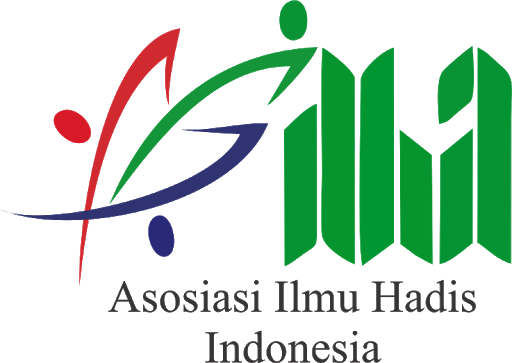TRADISI MANDI BALIMAU DI MASYARAKAT KUNTU: Living Hadis Sebagai Bukti Sejarah
DOI:
https://doi.org/10.14421/livinghadis.2016.1122Keywords:
Mandi Balimau, Living Hadis, IslamisasiAbstract
Living Hadis is respons of certain community of muslims which is based by a “hadis” itself. It is containing in personal or also in community life in human society. Living hadis is an acculturation or assimilation between Islam’s doctrine and some of local’s cultures. Acculturation and assimilation between them produces a tradition which is known as living tradition or if it is based on thought that the foundation of the tradition is Hadith, it is called by living hadis. One of a phenomenon of living hadis which is exists in Kuntu society is tradition of Mandi Balimau. It is can be understood as living hadis by two indications. First, its basic is to missionize doctrine of Islam’s missionary endeavor. Second, it is to put into practice a sacred text which is known by Kuntu society by hadis. Mandi Balimau as one of phenomenon of living hadis could be proof of history of first Islamization in Nusantara especially in Riau. It manifested that Kuntu is one of the first regions in Nusantara that Islam introduced with and it also proofed that process of islamization in Nusantara occurred tranquility.References
Abdullah, Taufik. (Ed.), Sejarah Umat Islam Indonesia. Majelis Ulama Indonesia. 1991.
Abdurrahman, Dudung. Komunitas-Multikulturalisme dalam Sejarah Islam Periode Klasik. Yogyakarta: Penerbit Ombak. 2014.
Afifuddin dan Beni Saebeni. Metodologi Penelitian Kualitatif. Bandung: Pustaka Setia. 2009.
Hasymy, Sejarah Masuk dan Berkembangnya Islam di Indonesia. Bandung:Al-Ma’arif. 1981.
Khaubawi, Usman al-. Duratun Nasihin terj. Abu H.F Ramadhan. Surabaya: Mahkota. 1987.
Mundziri, Logika. Jakarta: PT Raja Grafindo Persada. 1996.
Noeng Muhadjir. Metodologi Penelitian Kualitatif. Yogyakarta: Rake Sarasin. 1996.
Poesponegoro, Marwati Djoened. Sejarah Nasional Indonesia III Ed. Uka Tjandrasasmita. Jakarta: Balai Pustaka. 1992.
Ricklefs, M.C. Sejarah Indonesia Modern, terj. Dharmono Hardjowidjono. Yogyakarta: Gadjah Mada University Press. 2011.
Soekanto, Soerjono. Pengantar Penelitian Hukum. Jakarta: UI Press. 1986.
Suryadilaga, Alfatih. Aplikasi Penelitian Hadis dari Teks ke Konteks. Yogyakarta: Teras. 2009.
Wahid, Abdurrahman. Islamku Islam Anda Islam Kita (Jakarta: The Wahid Institute. 2006.
Jurnal dan Makalah
Arman, Fajri. “Persepsi Masyarakat TerhadapTradisiBalimau Kasai Di Desa Kuapan KecamatanTambang KabupatenKampar” dalam JomFISIPVolume 2 No. 2Oktober2015.
Putra, Heddy Shri Ahimsa. “Menafsir ‘al-Qur’an yang Hidup’, Memaknai al-Qur’anisasi Kehidupan: Perspektif Antropologi Budaya”, Makalah Seminar “Living Qur’an: Al-Qur’an sebagai Fenomena Sosial Budaya”, Yogyakarta, 13-15 Maret 2005.
Raini, RiaZelfy. “DayaTarikWisata BalimauKasai di Kecamatan Kampar KabupatenKamparProvinsi Riau” dalam JomFISIPVolume 2 No.2Oktober2015.
Penelitian
Mahmud, Moh. Natsir. “Studi Al-Qur’an dengan Pendekatan Historisisme dan Fenomenologi Evaluasi Terhadap Pandangan Barat tentang Al-Qur’an” Disertasi. Yogyakarta: Program Pasca Sarjana IAIN Sunan Kalijaga Yogyakarta, 1992, tidak diterbitkan.
Suryadilaga, Muhammad Alfatih. “Pemaknaan Sholawat Dalam Komunitas Joged Sholawat Mataram: Studi Living Hadis” Penelitian Fak. Ushuluddin Studi Agama dan Pemikiran Islam UIN Sunan Kalijaga.
Internet
Dediarman, “Kuntu Darussalam: Kerajaan Islam Pertama di Riau” dalam http://kebudayaan.kemdikbud.go.id (diakses pada 15 Nopember 2016).
Tulisan yang ada di makam Syekh Burhanuddin.
Wawancara via telpon seluler dengan Makhsus, salah seorang tokoh masyarakat Kuntu, pada tanggal 25 Maret 2015.
Downloads
Published
Issue
Section
License
- Authors who publish with this journal agree to the following terms:
- Authors retain copyright and grant the journal right of first publication with the work simultaneously licensed under a Creative Commons Attribution License that allows others to share the work with an acknowledgement of the work's authorship and initial publication in this journal.
- Authors are able to enter into separate, additional contractual arrangements for the non-exclusive distribution of the journal's published version of the work (e.g., post it to an institutional repository or publish it in a book), with an acknowledgement of its initial publication in this journal.
- Authors are permitted and encouraged to post their work online (e.g., in institutional repositories or on their website) prior to and during the submission process, as it can lead to productive exchanges, as well as earlier and greater citation of published work.
















